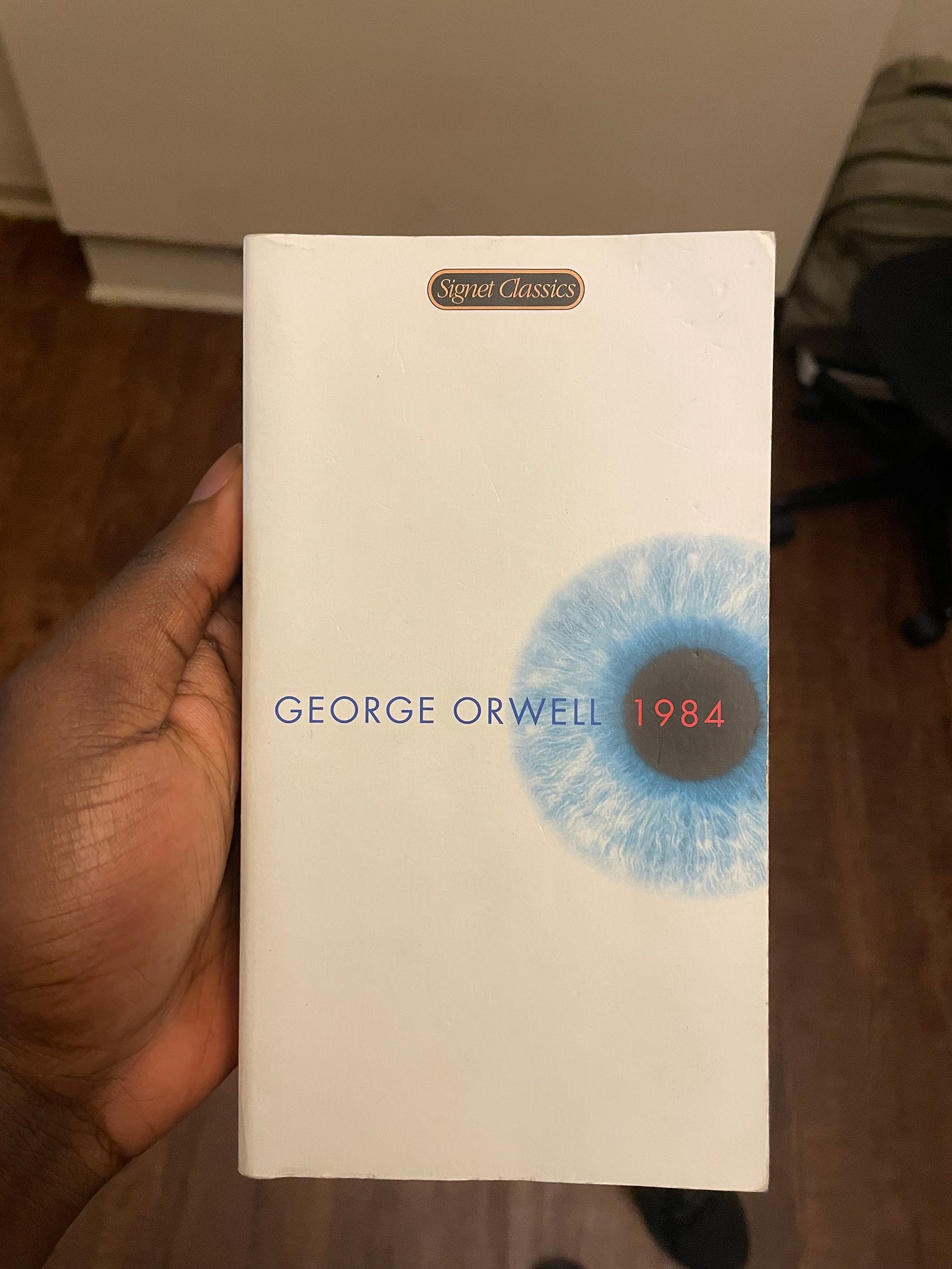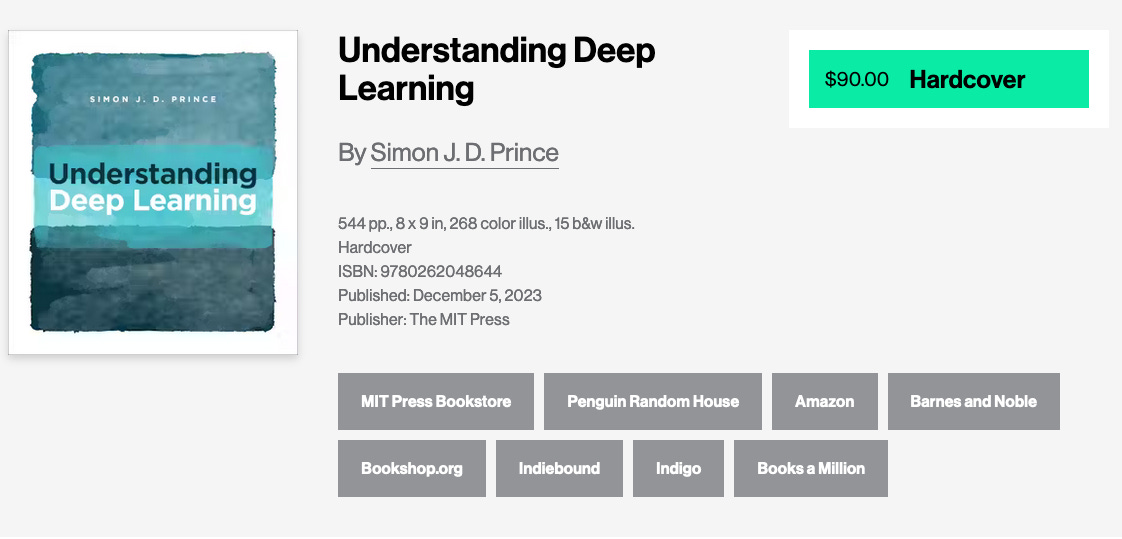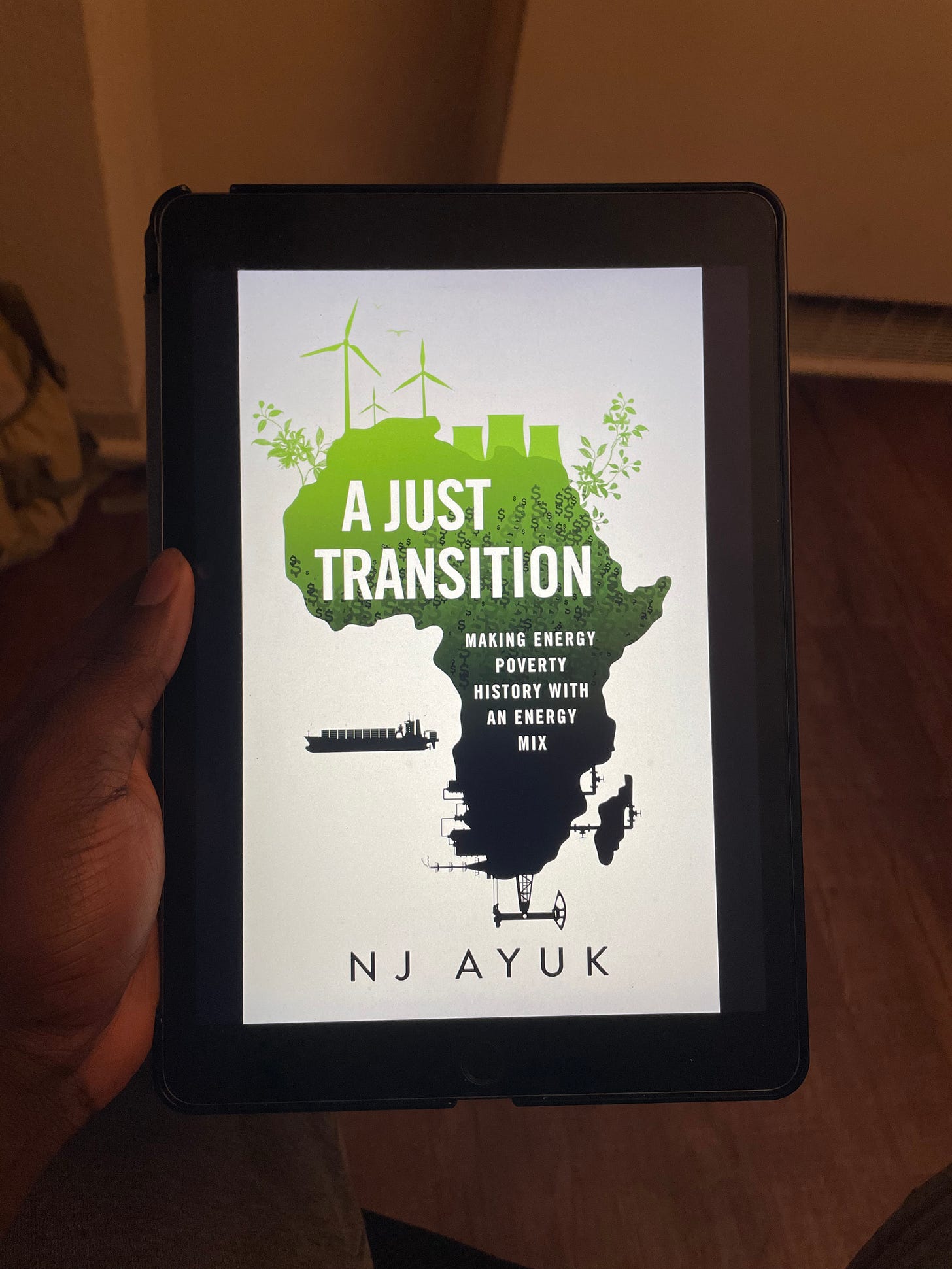[Previously: Summer Reading 2022]
I typically start a new year by compiling a reading list, but I almost never follow through with all the books because, new train of thoughts, new things to investigate; Afterall I am no robot. This year is no exception, I can’t find my original list, but this is what January to May looks like:
Also, I have been fairly aggressive and intentional on consuming AI content (books, essays, courses, products), because, the world is changing, and will continue to change in ways that are at least as disruptive as the invention and adoption of electricity. As I normally do, I plan to write a summary of my learnings at the end of the year.
In the meantime, here is what I am reading this summer.
[Fiction]
1984 by George Orwell
I have had this on my shelf since 2018. I needed a break from a bit too much non-fiction, so I picked it up. Quite a read! After reading it, I came up with a new personal taxonomy for fiction: 1) fictions that read like fictions, and 2) prophecies disguised as fiction. 1984 is an example of the latter. I am currently taking notes.
[Personal Finance]
Simple Path to Wealth by JL Collins
I came across this video on YouTube the other day, I kind of like the vibe of the speaker so I figured I should give the book a read. I am no financial expert (I am not a novice either), but the book is about pretty much what I have learnt some years back. But there is an argument to be made for regular re-reading for these kinds of writings.
In brief: get out of debt (if you are in debt), save 50% of your salary (that’s going to be hard to sell to a post-doc ), and buy index funds like your life depends on it. I am not done yet; I am still reading.
Here is an excerpt from the book:
It is the beer: The actual operating business of which we can own a part.
It is the foam: The traded pieces of paper that furiously rise and fall in price from moment-to-moment. This is the market of CNBC. This is the market of the daily stock market report. This is the market people are talking about when they liken Wall Street to Las Vegas.”
[…]
While this makes for great drama and television, for our purposes it is only the beer that matters. It is the beer that is the real operating money making underlying businesses, beneath all the foam and froth, that over time drives the market ever higher.
[…]
But it’s all just so much foam, fluff and noise. It doesn’t matter to us. We’re in it for the beer!
[Artificial Intelligence]
Understanding Deep Learning by Simon J.D. Prince
Deep learning is a branch of artificial intelligence (AI) that uses multi-layered artificial neural networks to learn from large amounts of data, thereby simulating aspects of the human brain's functioning.
Each added layer, or "depth," in the neural network enables more complex patterns and relationships to be recognized and learned. It's a crucial part of AI's ability to process intricate, multidimensional data and glean insightful information, mirroring facets of human cognitive processes.
With the ongoing AI revolution there is little need to write about deep learning capabilities. We now have AI system that can see, talk, write, draw, make music, and the list goes on. Underneath, it’s just maths and code – and this book is about the mathematical concepts.
The book is written by Simon J. D. Prince, a Professor of Computer Science at the University of Bath. And it’s not even out yet, but you can read a full draft here for free (that’s what I am doing.) Since it’s a very dense book, I plan to knock off a few more chapters this summer.
[Chemistry]
Mass Spectrometry: Chemistry Primer by James McCullogh and Neil Oldman
Mass spectrometry is an analytical technique used to identify the amount and type of chemicals present in a sample by measuring the mass-to-charge ratio and abundance of gas-phase ions. The process involves ionizing chemical compounds to generate charged molecules or molecule fragments and measuring their mass-to-charge ratios.
The resulting spectra of information can be used to deduce the elemental or isotopic signature of a sample, the masses of molecules, and to elucidate the chemical structures of small molecules, peptides and other chemical compounds.
I plan on starting a chemistry side project later this summer, and my chemistry will use some cleaning up.
[Energy]
A Just Transition: Making Energy Poverty History with an Energy Mix by NJ Ayuk
This one I picked up because a friend and former boss would like my opinion on the subject. Here is a summary of the book’s summary on Amazon:
In "A Just Transition," Cameroonian author NJ Ayuk argues that the International Energy Agency's green energy policies have unintentionally damaged Africa's energy economies. When a rigid requirement for adopting green energy was established, investment in Africa's potential oil and gas projects dwindled. Ayuk suggests that while renewable energy is crucial, it cannot solely drive the transformation for African countries, and they should leverage their oil and gas resources as well. The book discusses topics like energy poverty, the role of natural gas, harmful impacts of foreign aid, technology adoption, and creating opportunities for women, proposing that with careful governance and an understanding of local realities, a prosperous transition to renewable energy is feasible for African nations.










